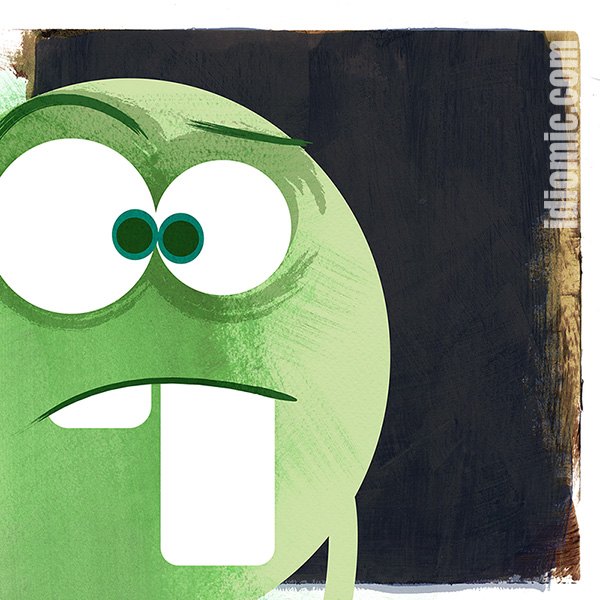Definition: To be so irritated by something (or somebody), you are willing to climb walls to escape.
Example: Matt was being driven up the wall by his neighbour’s compulsion to play the kazoo all night long.
Origin:
There seems to be no absolute origin for being driven up the wall, probably because it is so self explanatory. We’ve all had those moments. You’ve been cornered by somebody at a party. They’re telling you about some tax loophole which could save you ninety-seven cents each and every year. The pure mental image of climbing or driving up a wall to escape is like the image of a tall cold drink when you’re lost in the desert.
Its meaning seems to have changed subtly in the past few decades. We have come to use the term ‘driven’ less and less as a way of expressing a push or a force, and more and more as the act of controlling a car. Just like poor Iddy here. Not quite sure where he thinks he’s going. Maybe he’s misinterpreted the term ‘uptown’.







